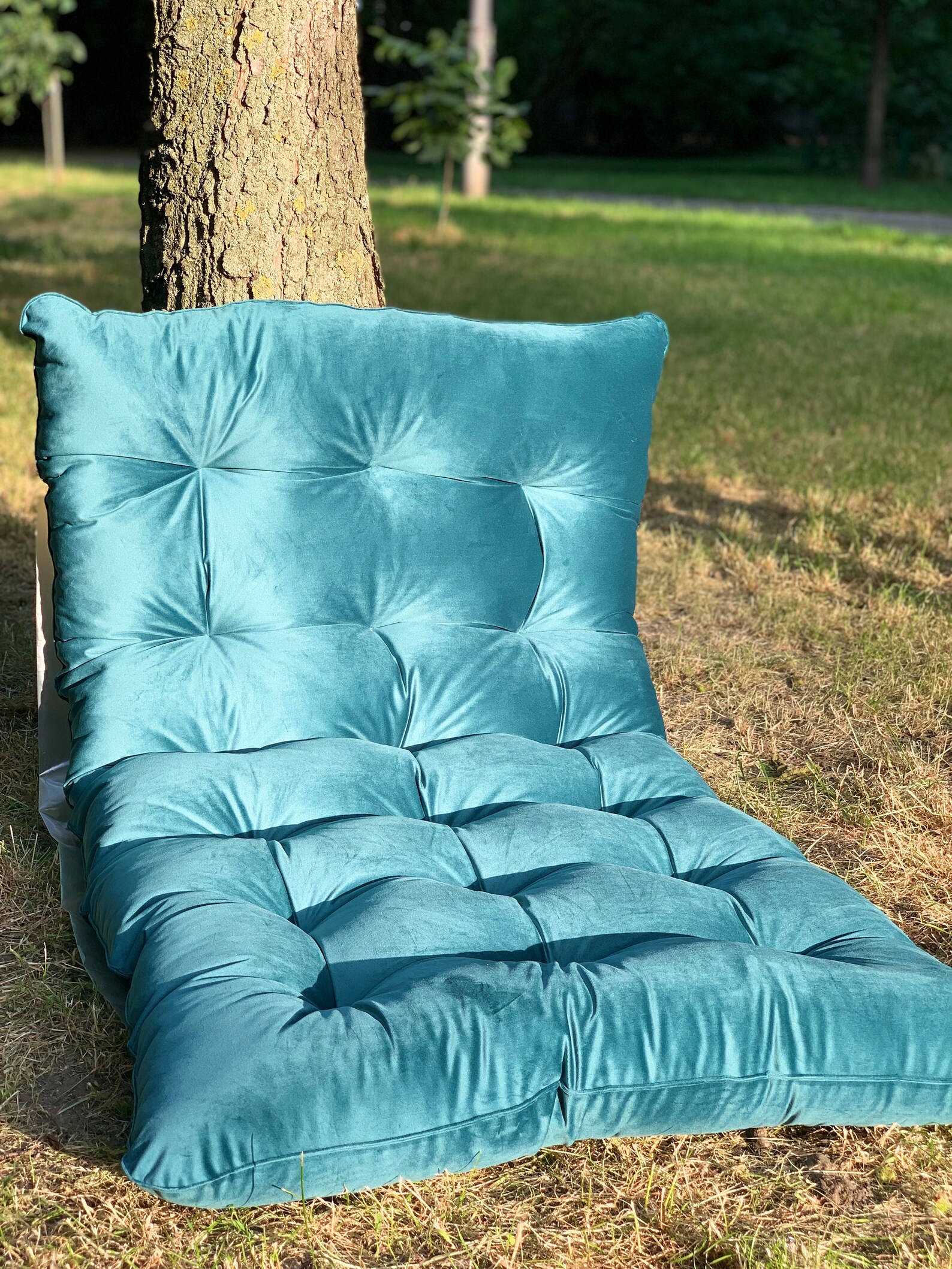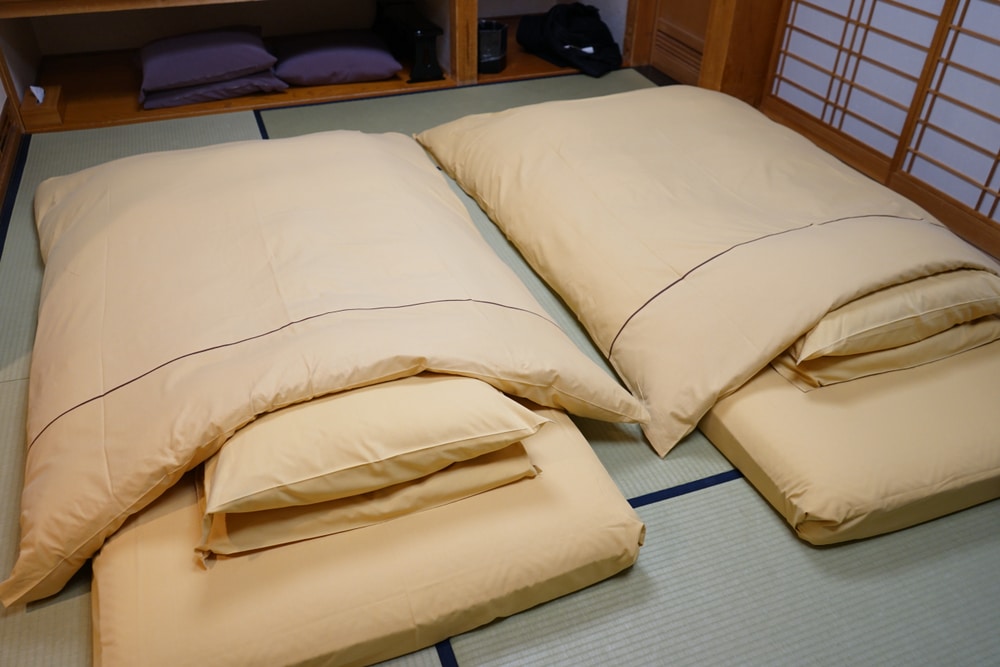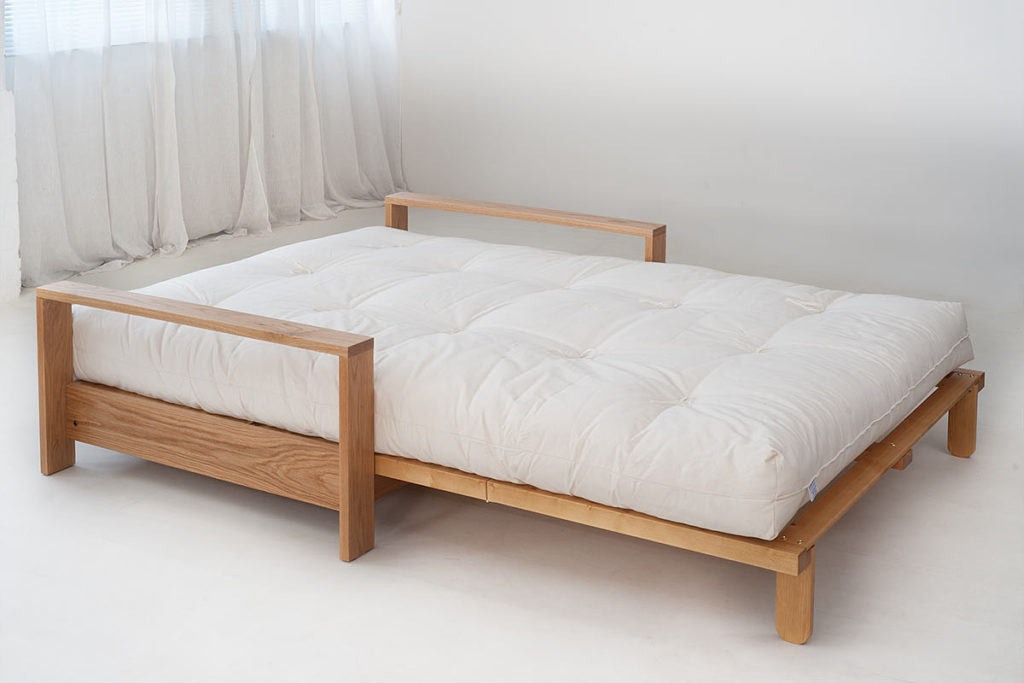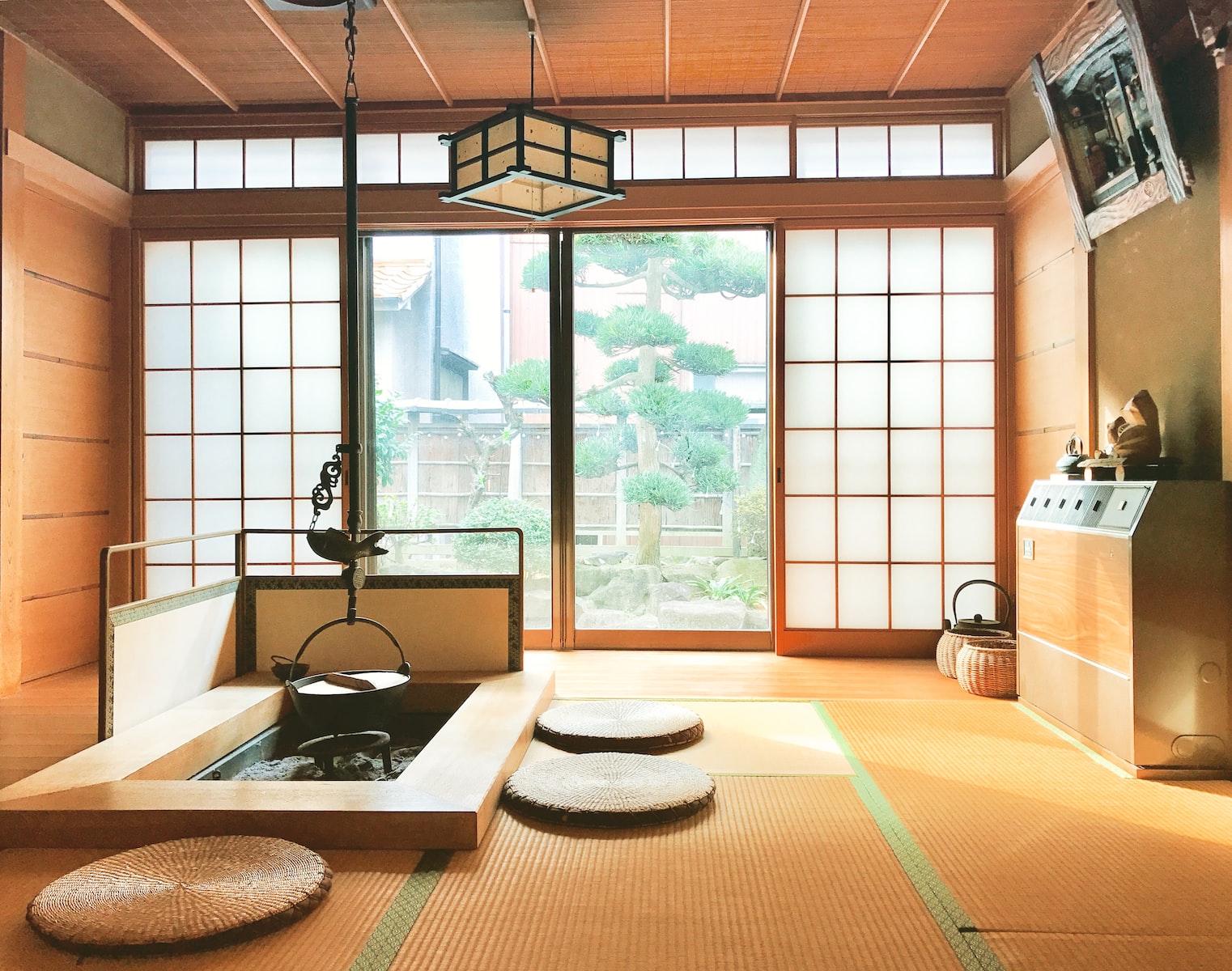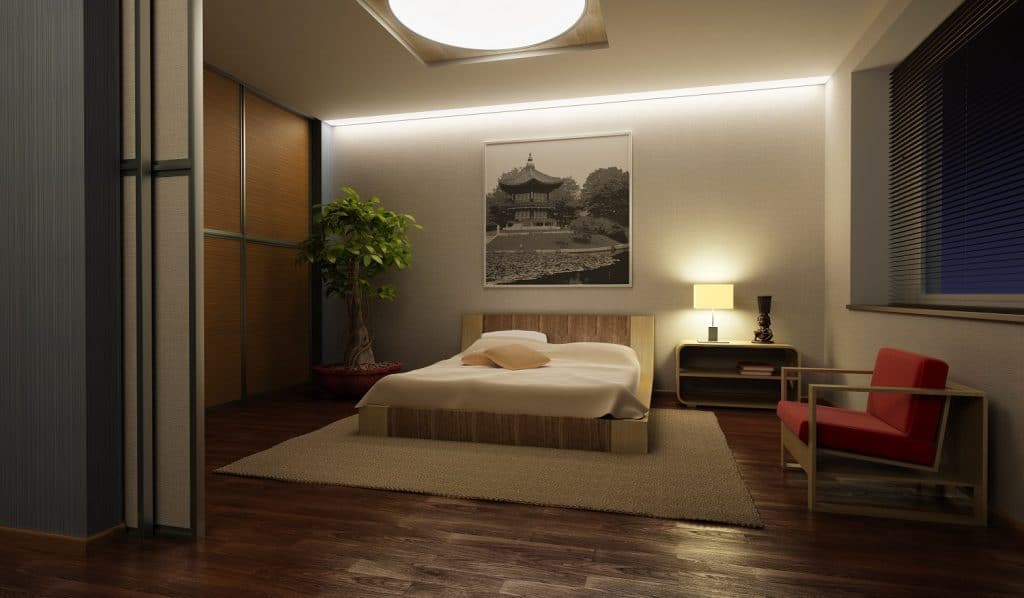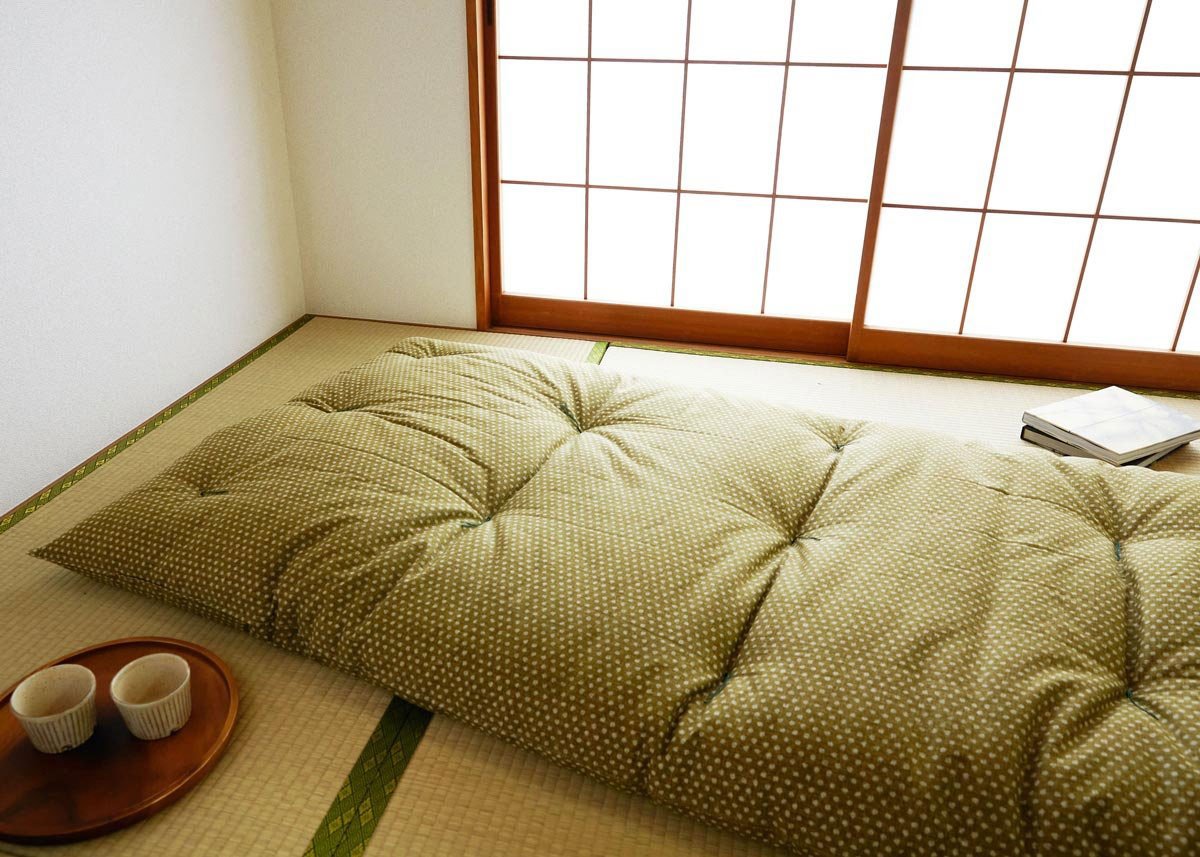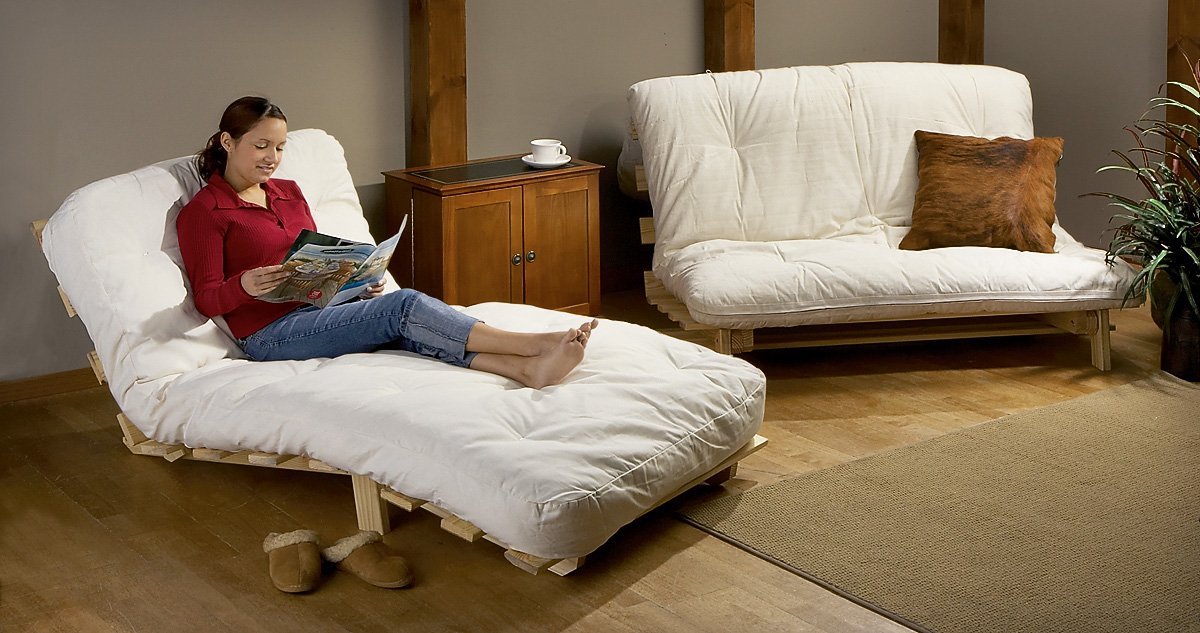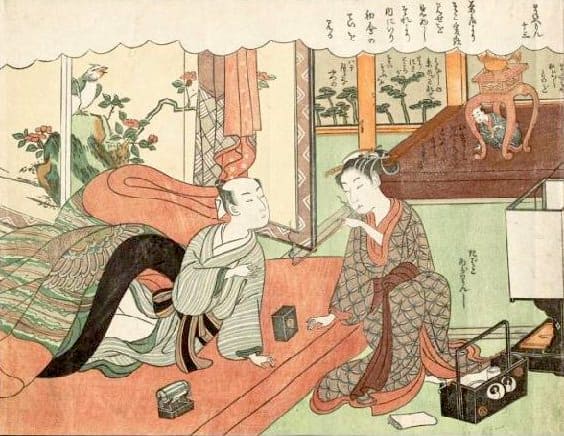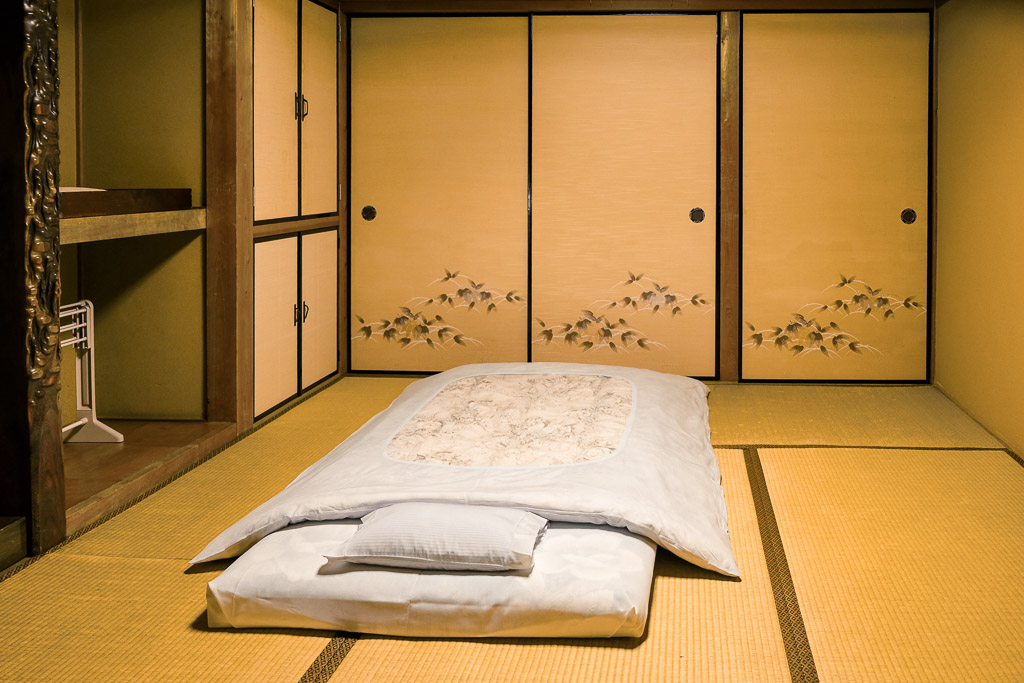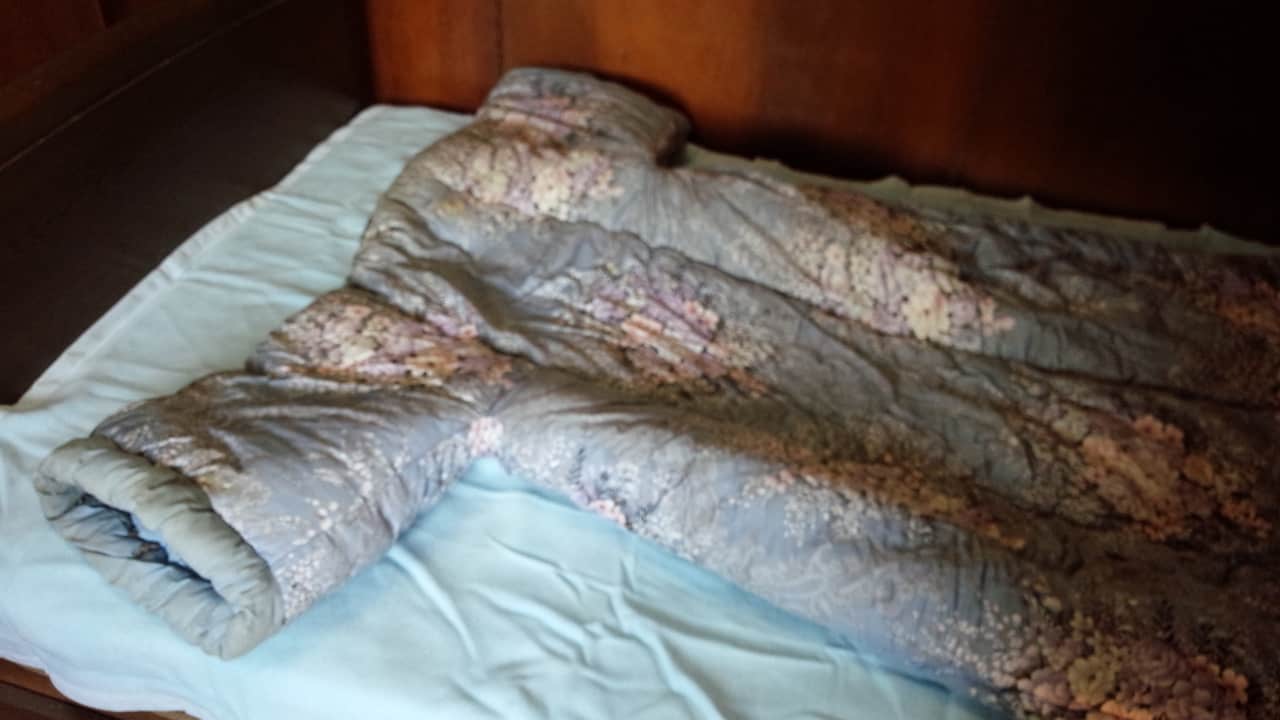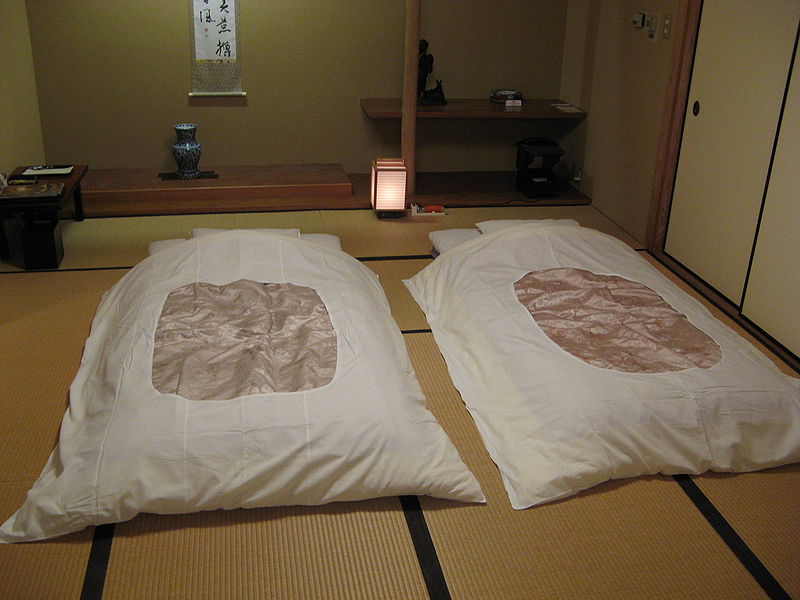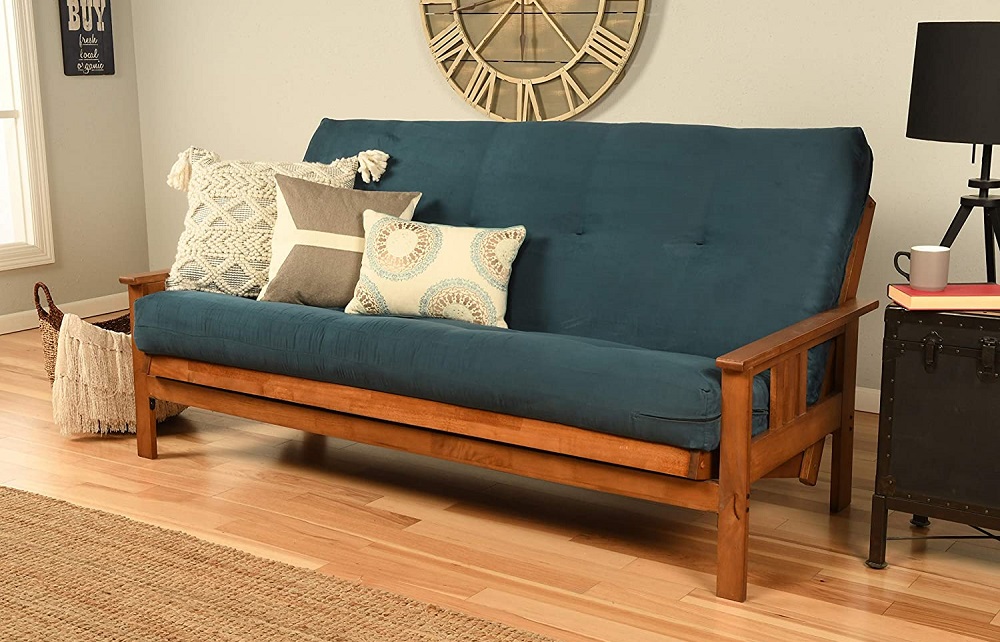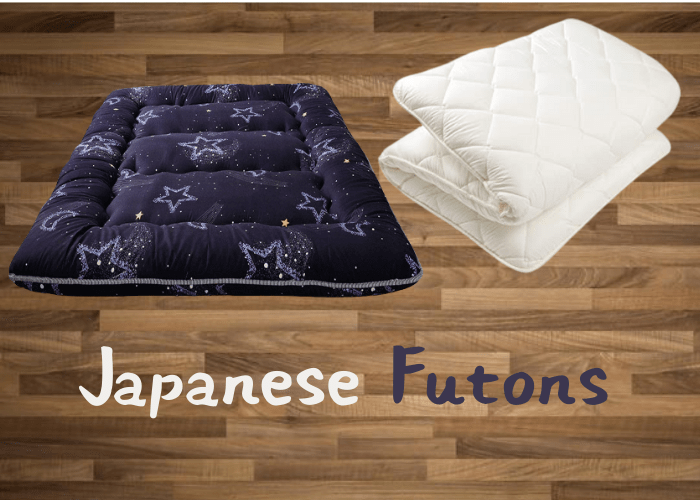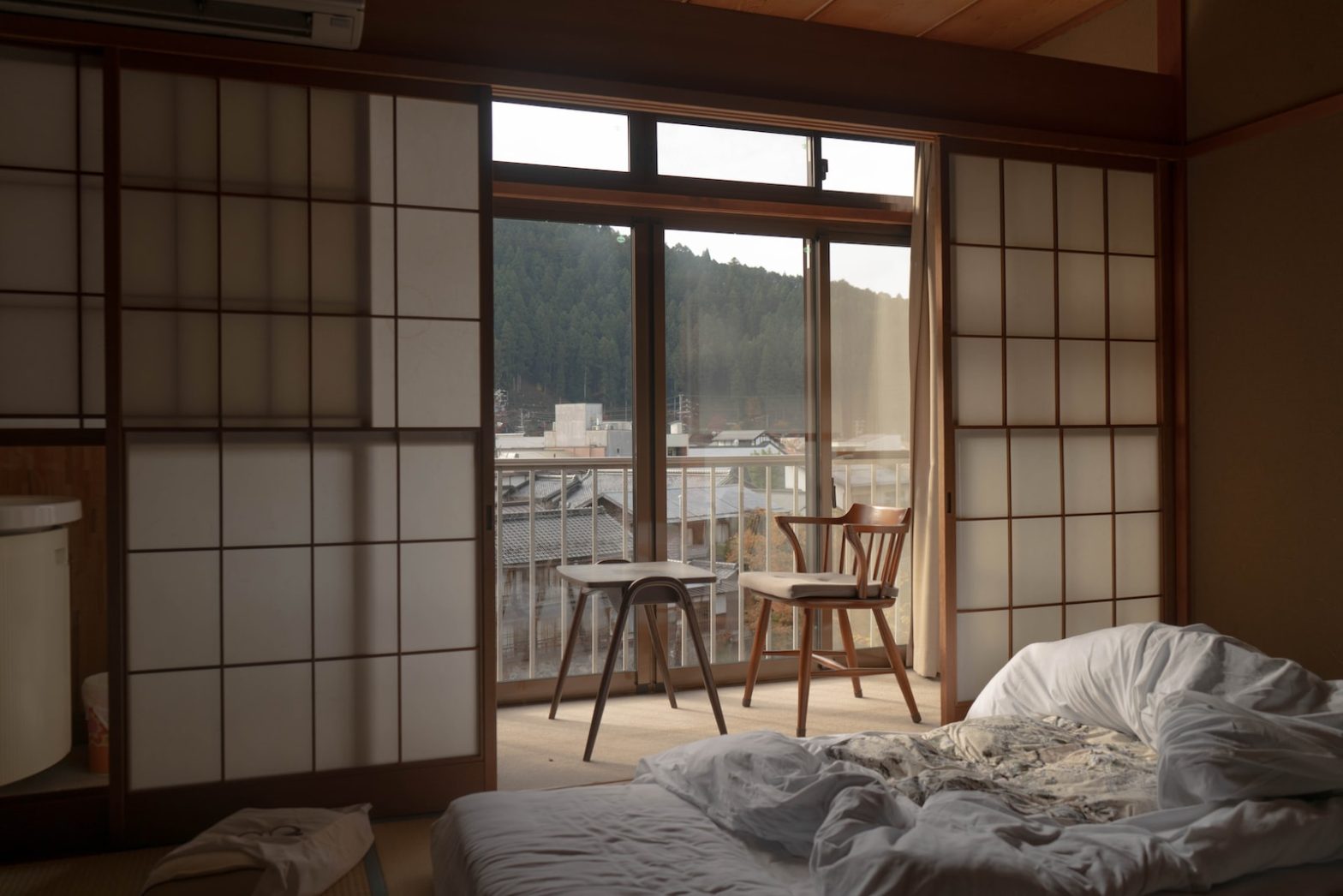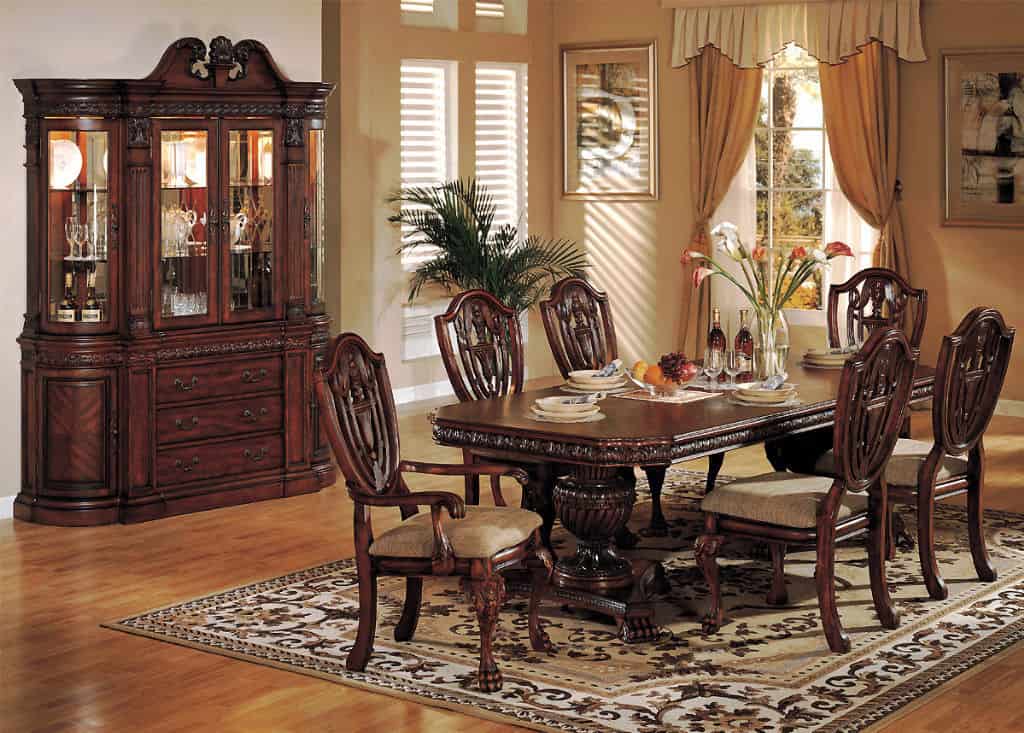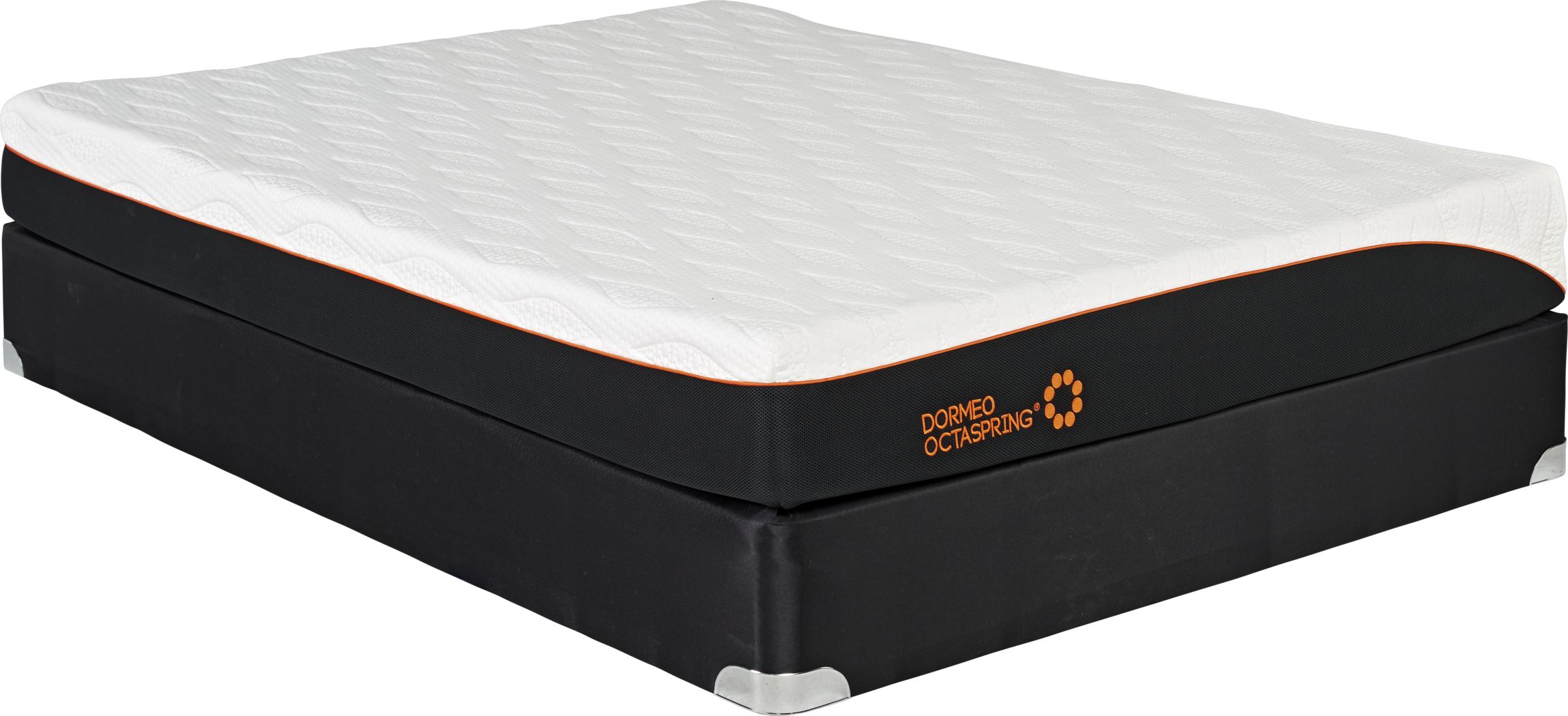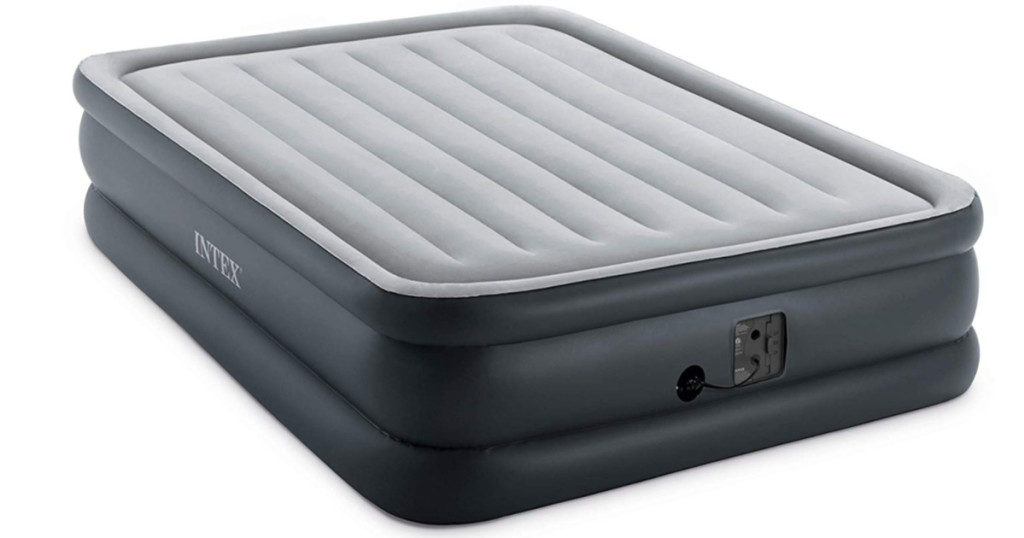When it comes to getting a good night's sleep, Japanese people have been relying on a traditional bedding called the futon mattress for centuries. This simple yet effective sleeping surface has become a staple in Japanese homes and has gained popularity in other parts of the world as well. In this article, we will explore the reasons behind why Japanese people sleep on futons and the benefits it brings to their overall well-being.Japanese Futon Mattress: Traditional Bedding for a Good Night's Sleep
Before we dive into the reasons why Japanese people choose futons over other types of mattresses, let's first understand what a futon is. A Japanese futon mattress is essentially a thin, flat cushion that is placed on the floor for sleeping. It is made up of layers of cotton or wool stuffing and is usually covered with a removable and washable fabric cover. Unlike traditional Western mattresses, futons are designed to be rolled up and stored away during the day, making them a great space-saving option for smaller living spaces.Japanese Futon Mattress: A Guide to Traditional Bedding
One of the main reasons why Japanese people sleep on futons is their living space. Traditional Japanese homes are small, and the concept of having a designated bedroom with a large bed is not common. Futons provide a practical solution for this as they can be easily stored away, allowing the same space to be used for other activities during the day. Another reason for sleeping on futons is the cultural aspect. In Japan, sleeping on a futon on the floor is seen as a traditional and natural way of sleeping. It is believed that this sleeping position brings the body closer to the earth, promoting a sense of grounding and relaxation. Many Japanese people also prefer the feeling of sleeping on a firm surface, which is what futons provide.Why Do Japanese People Sleep on Futons?
Apart from the cultural and practical reasons, there are a few benefits that come with sleeping on a Japanese futon mattress. One major advantage is the support it provides for the body. As futons are designed to be placed on the floor, they offer a firmer and more even surface for the body to rest on. This can help alleviate back pain and improve overall posture. Another benefit is its portability. Unlike traditional mattresses, futons are lightweight and easy to move around. This makes them a great option for people who frequently move or for those who like to change up their sleeping arrangements regularly. Additionally, futons are relatively affordable compared to other types of mattresses, making them accessible to a wider range of people.The Benefits of Sleeping on a Japanese Futon Mattress
When it comes to choosing the right futon mattress for your needs, there are a few things to consider. Firstly, think about the level of firmness you prefer. Futons come in various levels of firmness, so it's essential to find one that suits your body's needs. You should also consider the material used in the stuffing. Cotton futons are softer and more comfortable, while wool futons are firmer and provide better support. Another factor to consider is the thickness of the futon. Thicker futons are more comfortable but may not be as supportive, while thinner futons are firmer but may not provide enough cushioning. Ultimately, it's a matter of personal preference and finding the right balance between comfort and support.How to Choose the Right Japanese Futon Mattress for You
The use of futon mattresses in Japan dates back to the 8th century. Originally, futons were only used by the upper class and were made with silk or other expensive materials. It wasn't until the 17th century that futons became more accessible to the general population as cotton became more widely available. Since then, futons have become a staple in Japanese homes and have evolved to include different materials and designs.The History of Sleeping on Futons in Japan
Aside from the practical and health benefits, sleeping on a futon also holds cultural significance in Japan. In traditional Japanese homes, the futon is considered a sacred space where one can rest and rejuvenate after a long day. It is also seen as a symbol of simplicity and minimalism, which aligns with the traditional Japanese aesthetic of finding beauty in simplicity.The Cultural Significance of Sleeping on a Futon in Japan
Sleeping on a firm surface, like a futon, can have several health benefits. For starters, a firm mattress can help alleviate back pain and improve posture. It also allows for better blood circulation and can reduce the likelihood of developing pressure sores. Additionally, sleeping on a firm surface can also help improve overall sleep quality as it promotes better spinal alignment.The Health Benefits of Sleeping on a Firm Mattress
To ensure your futon mattress lasts for a long time, proper care is essential. One important thing to remember is to air out your futon regularly. This helps prevent mold and mildew from developing in the stuffing. It's also recommended to expose your futon to direct sunlight every few months to help kill any bacteria or dust mites. Lastly, make sure to follow the manufacturer's instructions for washing and drying the cover to keep it clean and fresh.How to Properly Care for a Japanese Futon Mattress
Compared to traditional Western mattresses, Japanese futons have a few notable differences. As mentioned earlier, futons are designed to be placed on the floor, while Western mattresses are usually placed on a bed frame. This difference in placement can affect the level of support and comfort provided. Additionally, futons are thinner and more lightweight compared to Western mattresses, making them more portable and easier to store away. In conclusion, sleeping on a Japanese futon mattress offers not only practical benefits but also cultural and health benefits. It's a tradition that has stood the test of time and continues to provide a comfortable and natural way of sleeping for many Japanese people. If you're looking to try something new or are in need of a space-saving and affordable bedding option, a Japanese futon mattress might just be the perfect choice for you.The Differences Between Japanese Futons and Western Mattresses
The Traditional Japanese Sleeping Style
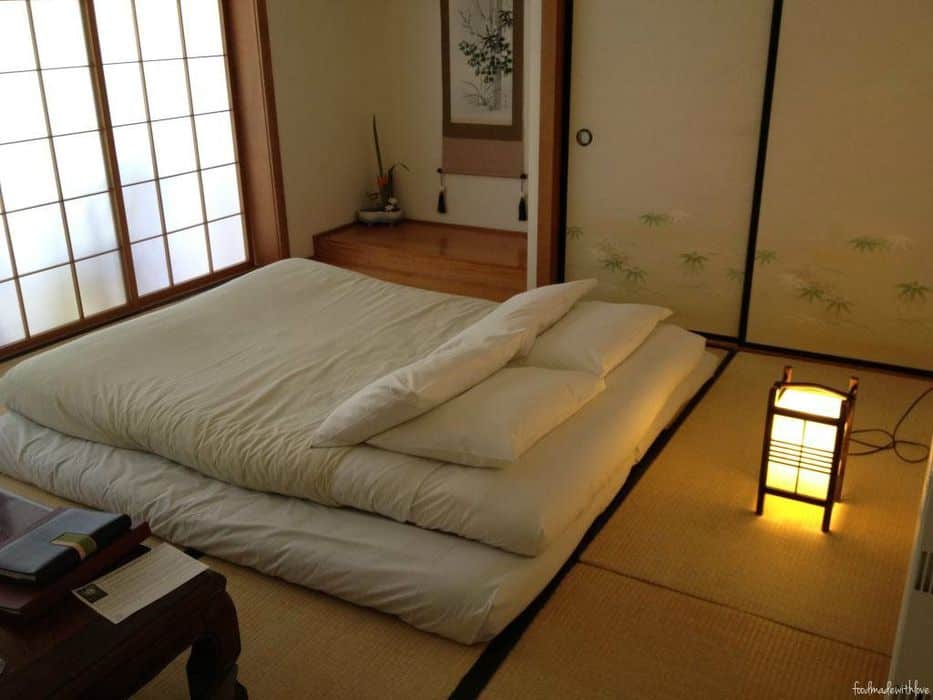
Exploring the Use of Mattresses in Japanese House Design
 When it comes to house design, Japanese homes are known for their minimalistic and functional approach. This is also reflected in their sleeping style, which has been practiced for centuries.
Traditionally, Japanese people did not sleep on mattresses, but rather on futons placed on tatami mats.
However, with the modernization of Japan, the use of western-style mattresses has become more common.
But the question remains, do Japanese people still prefer to sleep on traditional futons or have they fully embraced mattresses?
When it comes to house design, Japanese homes are known for their minimalistic and functional approach. This is also reflected in their sleeping style, which has been practiced for centuries.
Traditionally, Japanese people did not sleep on mattresses, but rather on futons placed on tatami mats.
However, with the modernization of Japan, the use of western-style mattresses has become more common.
But the question remains, do Japanese people still prefer to sleep on traditional futons or have they fully embraced mattresses?
The Origins of Sleeping on Futons
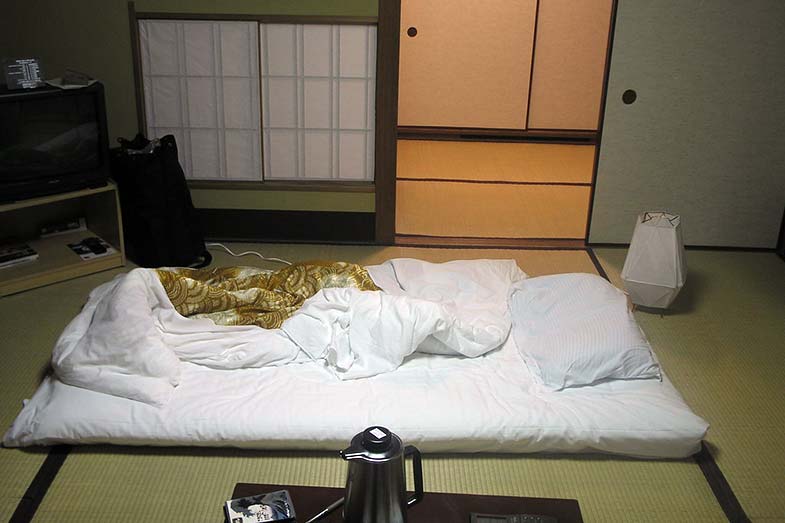 The use of futons in Japan can be traced back to the Heian period (794-1185). During this time, people used
straw or grass mats called "tatami" as flooring
in their homes. These mats were not only durable but also provided insulation during the cold winter months.
Futons were used as a multi-purpose bedding, used for sleeping, sitting and even as a table or chair.
This practical approach to living space has been ingrained in Japanese culture and has continued to be a popular sleeping style.
The use of futons in Japan can be traced back to the Heian period (794-1185). During this time, people used
straw or grass mats called "tatami" as flooring
in their homes. These mats were not only durable but also provided insulation during the cold winter months.
Futons were used as a multi-purpose bedding, used for sleeping, sitting and even as a table or chair.
This practical approach to living space has been ingrained in Japanese culture and has continued to be a popular sleeping style.
The Benefits of Sleeping on Futons
 There are several benefits to sleeping on a traditional futon.
Firstly, futons are lightweight and easy to move around, making them ideal for small living spaces.
They can be easily rolled up and stored away during the day, freeing up more space in the room.
Futons are also more affordable compared to western-style mattresses, making them a practical choice for many Japanese households.
Additionally, sleeping on a futon promotes good posture as it provides a firmer and more supportive surface compared to a soft mattress.
There are several benefits to sleeping on a traditional futon.
Firstly, futons are lightweight and easy to move around, making them ideal for small living spaces.
They can be easily rolled up and stored away during the day, freeing up more space in the room.
Futons are also more affordable compared to western-style mattresses, making them a practical choice for many Japanese households.
Additionally, sleeping on a futon promotes good posture as it provides a firmer and more supportive surface compared to a soft mattress.
The Rise of Western-Style Mattresses
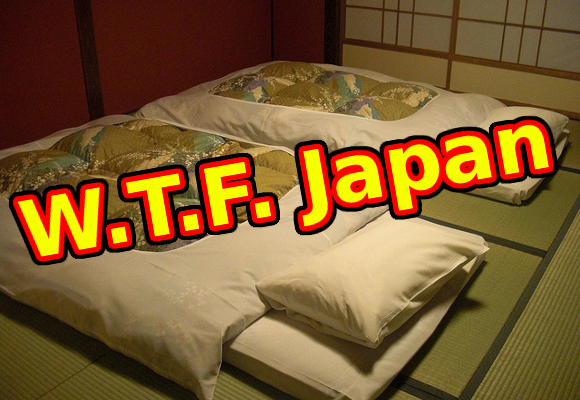 With the influence of western culture, the use of mattresses has become more prevalent in Japan.
Many Japanese people have started to see the benefits of sleeping on a soft and cushioned surface.
Additionally,
mattresses are easier to maintain and can be used for a longer period compared to futons which may need to be replaced more frequently.
However,
some Japanese people still prefer the traditional futon as it is a part of their cultural identity and a way to stay connected to their roots.
With the influence of western culture, the use of mattresses has become more prevalent in Japan.
Many Japanese people have started to see the benefits of sleeping on a soft and cushioned surface.
Additionally,
mattresses are easier to maintain and can be used for a longer period compared to futons which may need to be replaced more frequently.
However,
some Japanese people still prefer the traditional futon as it is a part of their cultural identity and a way to stay connected to their roots.
The Verdict: Futons vs Mattresses
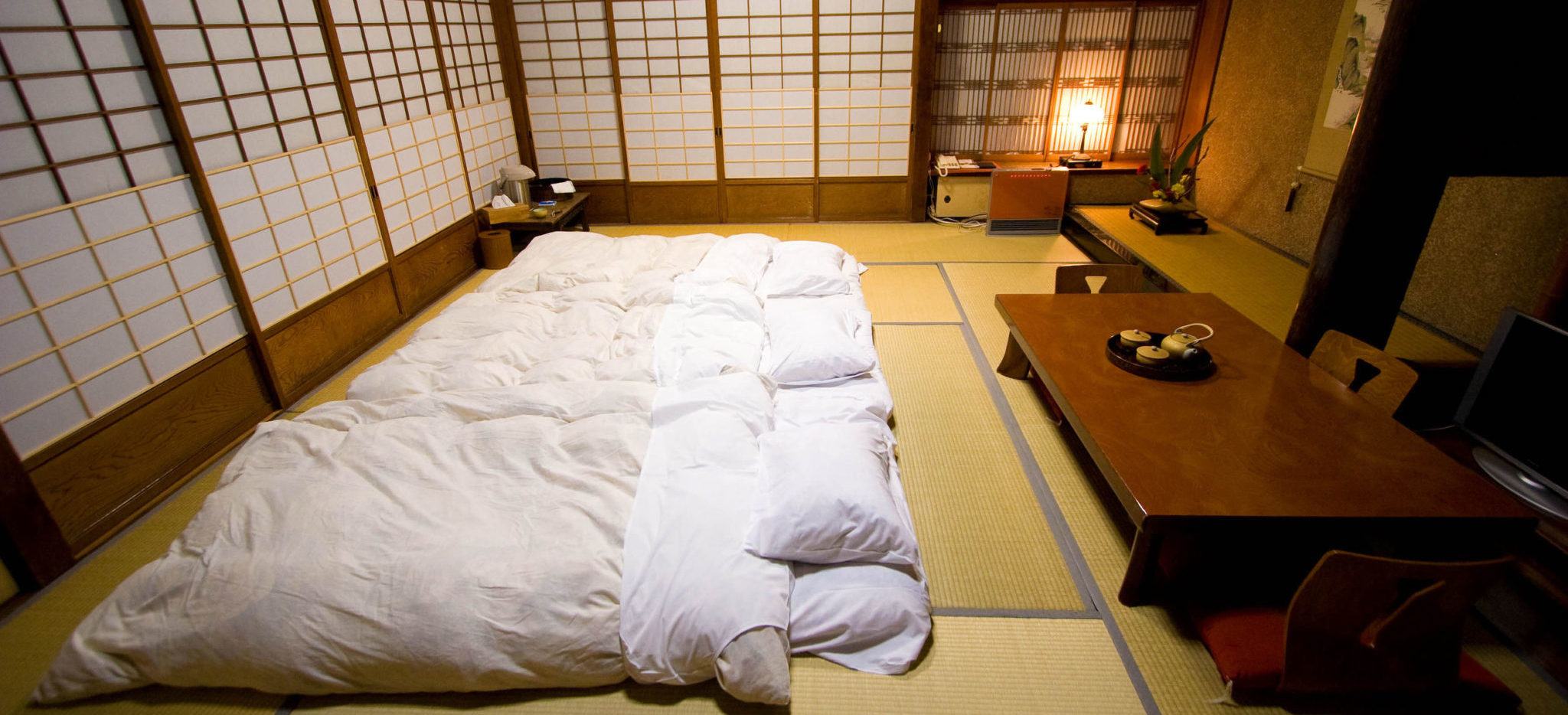 In conclusion, the answer to whether Japanese people sleep on mattresses or futons is not a simple one.
While the use of mattresses has become more common, many Japanese people still prefer the traditional futon for its practicality and cultural significance.
Ultimately, it boils down to personal preference and the space available in one's home.
Whether it's a futon or a mattress, the important thing is to have a comfortable and restful sleep.
After all, a good night's sleep is essential for a healthy and happy life.
In conclusion, the answer to whether Japanese people sleep on mattresses or futons is not a simple one.
While the use of mattresses has become more common, many Japanese people still prefer the traditional futon for its practicality and cultural significance.
Ultimately, it boils down to personal preference and the space available in one's home.
Whether it's a futon or a mattress, the important thing is to have a comfortable and restful sleep.
After all, a good night's sleep is essential for a healthy and happy life.


